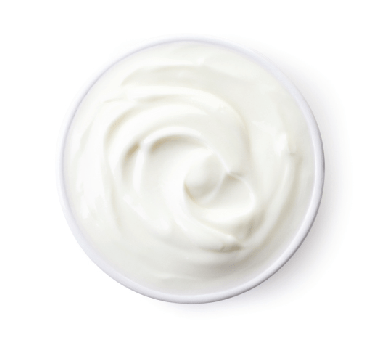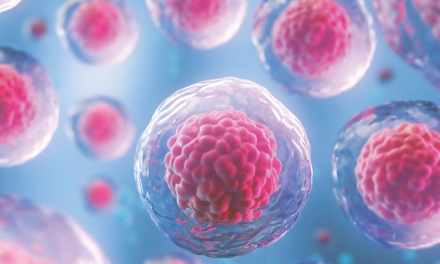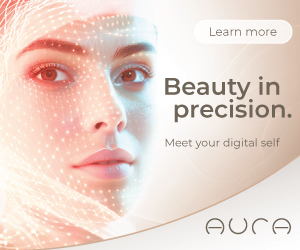Sana Khan discusses the role of a nutritionist in aesthetic and anti-ageing medicine and explains why more dermatologists and plastic surgeons need to consider nutrition when formulating a treatment plan
The rise in surgical and non-surgical cosmetic treatments in recent years has been a great success among the general public. However, the key question is: are the occasional aesthetic treatments necessary and sufficient to maintain the client’s desired look?
Scientific research continually demonstrates that our body’s ability to function is significantly affected by what we eat. To that end, it is becoming common practice for people to turn to nutritional therapy in order to manage a vast array of health problems or to improve the way they look and feel.
Skin
The genesis of healthy skin cells requires certain nutrients, which in turn are heavily reliant on diet. Food, in general, is often viewed as fuel for the body; however, food really is more than that. In addition to this, the skin depends on the functioning of many systems, and can often be an outward manifestation of how well our body systems are functioning synergistically. Hormonal imbalance, weak immunity, digestive malfunction, and internal inflammatory issues can contribute to problematic skin, such as acne, eczema, rosacea or increased sensitivity. With conditions like these, we need to delve deeper into the matter, often targeting specific systems. More importantly, working alongside a doctor’s recommendations, it is imperative to seek support for medical and aesthetic treatments through bespoke dietary protocols aimed at achieving optimal and longer lasting results.
While general information on nutrition is available through different media sources including a myriad of ‘new’ diet plans, the reality is that they do not always deliver the goods. Many clients rely on different ‘diet quick-fixes’ promising the perfect skin without realising that skin health relies primarily on the inner functioning of our body. Given that the modern lifestyle places many obstacles between us and the path to health, supporting the body through diet and lifestyle is all the more important.
Good quality skin in any age relies on all elements within the skin’s dermis to work together efficiently as well as a combination of a healthy lifestyle and effective skin regimen. As we enter our mid-20s, skin cellular turnover begins to slow down, resulting in the development of lines and wrinkles. Therefore, educating clients to seek guidance early as a preventative measure will not only help them protect their skin, it will help improve the results from any aesthetic treatments or skincare products they purchase. Introducing a nutritionist at this point in the client’s journey is a great way to optimise results for skin through nutrition, lifestyle and will benefit both you and the client by maximising aesthetic treatment results.
The role of a nutritionist in the aesthetic and dermatology world
How can nutrition help?
Working with a nutritionist is a great way to provide additional support for specific dermatological conditions, or simply promote youthful glowing skin that is more resistant to the signs of ageing. Visiting a nutritionist for advice on anti-ageing matters is becoming increasingly popular. Clients often seek information on nutrient intake to maximise collagen production, as well as to promote healing and prevent DNA damage that leads to fine lines and wrinkles. Moreover, many women seek bespoke advice on balancing hormonal activity to help with conditions, such as PCOS and acne, through blood sugar balance, weight management, and anti-inflammatory protocols.
Clients also seek advice on how to regulate digestive dysfunction, which is commonly associated with problematic skin, and to identify allergies and intolerances that could be exacerbating inflammatory skin conditions. Finally, most people do not realise the benefits of restful beauty sleep, and often many people suffer from insomnia, which is detrimental to skin health.
Common topics for nutritionists
There is great hype in the cosmetic market regarding the impact of topical antioxidants on skin; however, dietary intake of antioxidants is generally much better absorbed than those applied topically. Antioxidants are synonymous with younger, age resistant skin largely owing to their ability to protect our cells from the damage caused by harmful free radicals. But it isn’t as simple as just eating blueberries. To really achieve an increased level of beautiful radiant skin, it is vital to get a whole complex of antioxidants from different sources. The pigment in fruit/vegetables is largely owing to antioxidants, so the more colour on your plate the better. Also, clients should aim to get antioxidants from other sources such as nuts, oily fish, beans, pulses, green tea, ginger, garlic, parsley, turmeric, and spices such as cinnamon and cayenne pepper.
Vitamin C

Zinc
Dietary zinc can strengthen immune function, enhance energy production, and support many other bodily functions. The skin is no exception and, uniquely, zinc plays a major role to restore cellular function and regenerate damaged elastin fibres. Foods rich in zinc promote healing and tissue repair while also protecting against the damage inflicted by inflammatory responses. Zinc could be significantly beneficial for treatments such as PDO or Dermaroller where optimal healing is required. Zinc also helps to prevent excessive production of testosterone, which can be one of the biggest causes of acne. Additionally, zinc is essential in the production of collagen, which ultimately heals the skin when we have spots. Often people complain that spots and small scars heal slowly, or leave discolouration or pigmentation; zinc can really help in this area as well. If your clients have white spots on their nails then this may suggest they’re lacking this mineral.
Chemical peels and exfoliants
Peels and face exfoliants stimulate cell turnover and bring healthier skin to the surface. To support this, vitamin B3 or niacinamide is one of the most important vitamins for cellular renewal and is found in fish, nuts, and mushrooms. Recent research has linked niacinamide to anti-inflammatory properties and regeneration of epidermal cells. Aside from this, it is topically used in many cosmetics due to the role of B3 in DNA repair and cellular response to inflammation and apoptosis. It is, therefore, ideal for an anti-ageing regimen. Certain conditions, such as gut inflammation or other bodily intolerances may reduce the absorption of B3.
Probiotics
It is vital to remember that when our inner-body systems are out of sync, this can have an adverse effect on our skin. We all know probiotics are vital for gut health — so I won’t go into much detail about why we need to keep up with recommended levels. But we wouldn’t naturally link them to skin health. From a functional medicine perspective, restoring your gut is definitely a winner considering 70–80% of our immune tissue is located in our digestive 
SPFs
There is considerable debate surrounding the use of SPFs in the medical aesthetic world. SPFs often contain a variety of chemicals, preservatives or heavy metals with their benefits often outweighing their side-effects. The 3–4% increase in chemicals applied to the skin needs to be factored according to climate and the patient’s daily activities; however, developing an informed understanding of your patient’s skin will contribute to a safer and healthier result.
Inflammatory conditions
Redness, soreness, and itching skin are caused by inflammatory reactions in the skin, and prolonged problems can be a sign of systemic inflammation. Certain foods can make these conditions worse, such as sugar, fatty and processed meats, dairy, and white carbs. Omega-3 fish oils are often recommended to reduce skin inflammation, while turmeric capsules reduce systemic body inflammation and improve digestive health. Both can be useful in treating eczema and psoriasis.
Safe practice
It is vital that you seek advice from a degree level nutritionist who is registered with the relevant governing bodies. Prescribing supplements need to also be reviewed and monitored as certain supplements, such as fat-soluble nutrients can carry the risk of toxicity. The two most common fat-soluble prescribed vitamins for skin health, which need to be monitored carefully, are vitamin A and D.
Vitamin D is vital for many treatments, such as detoxification, enhanced immunity, increased brain function, hormonal balance, and improved digestion among others. This can be a reason why skin conditions clear up when we migrate to hotter climates where the sun shines (and there is a distinct lack of stress!). Vitamin D starts to dwindle during the winter months in the northern hemisphere, especially when people work indoors; therefore, it is important to absorb Vitamin D from other sources to prevent your body from severe deficiency.
Vitamin A plays a crucial role in skin health by preventing sebaceous glands from over secreting, whilst also protecting cell structures by acting as an anti-oxidant. Intake of Vitamin A must be administered and regularly monitored by a nutrition practitioner as excessive consumption of this vitamin can be toxic.
Summary
To summarise, it’s always useful to work with a nutrition expert who can provide bespoke guidance to clients on aspects of diet and lifestyle as a preventative measure and to explain the synergy between our body systems. Whether it’s providing basic advice on the effects of alcohol on skin health, or tailored advice for specific conditions, or explaining why the ‘new fad diet’ didn’t work. Good quality nutrition, an enhanced lifestyle and restful sleep will only support achieving optimal results in the aesthetic and anti-ageing world.






